As global citizens, we must do as much as we can to promote intercultural understanding and peace, as well as protect those who need it most. I have recently discovered a very important organization, Survival International, which is an international organization that supports tribal people worldwide. Survival International looks out for many, many indigenous people around the world - including the Indians of Raposa-Serra do Sol, the Yanomami uncontacted Indians in the depths of the Amazon rainforest, and the Dongria Kondh, among others. I thought it important to share this information with our Wandering Educators. To that end, I was lucky enough to sit down and talk with Miriam Ross, of Survival International. Here's what she had to say...
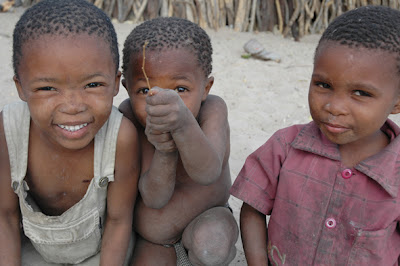
© Survival
WE: Please tell us more about Survival International...
MR: Survival is the only organization campaigning for the rights of tribal peoples worldwide. We stand for their right to decide their own futures, and we help them defend their lives, land and human rights. We believe that public opinion is the most effective force for change. Its power will make it harder, and eventually impossible, for governments and companies to oppress tribal peoples.
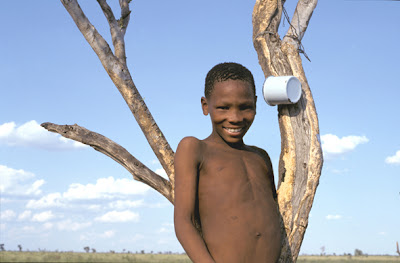
© Fiona Watson/Survival
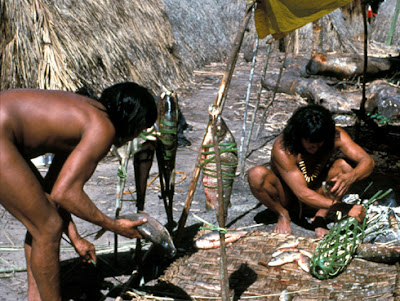
Enawene Nawe preparing fish for smoking, Mato Grosso, Brazil 200
Enawene Nawe, Brazil
© Fiona Watson/Survival
WE: What was the genesis of your organization?
MR: Survival was founded in 1969 after an article by Norman Lewis in the UK's Sunday Times highlighted the massacres, land thefts and genocide taking place in Brazilian Amazonia. Today, Survival has supporters in 82 countries, and offices in the UK, France, Italy, Spain, Germany and the Netherlands. We hope to open a US office very soon. We work for tribal peoples' rights in three complementary ways: education, advocacy and campaigns. We also offer tribal people themselves a platform to address the world. We work closely with local indigenous organizations, and focus on tribal peoples who have the most to lose, usually those most recently in contact with the outside world.

© Survival
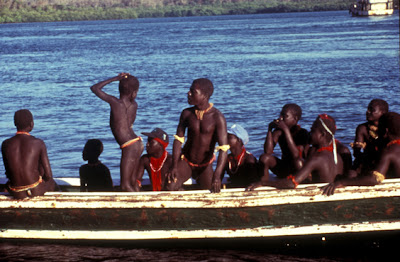
Jarawa in government administration boat at Vhara jetty, Andaman Islands, Bay of Bengal, India - Jarawa, India
© Pankaj Sekhsaria/Survival
WE: What tribes do you support? What makes a tribe eligible for inclusion?
MR: Survival stands for the rights of all tribal peoples, and we have nearly one hundred ongoing cases. Since our resources are limited, we can be most effective by focusing on a small number of cases at any one time, and these are the cases that are most urgent and where we feel we can have the most impact. We have very close links with tribal communities and organizations, and most of our campaigns are based on discussion between the tribes themselves and our researchers, who spend time in their communities. The one exception to this is where a tribe is uncontacted or has very limited contact with outsiders, in which case it is not appropriate to try to visit them. On of our biggest campaigns at the moment is our 'uncontacted tribes' campaign. The issue got a lot of publicity earlier this year with the release of some amazing picture of an uncontacted tribe taken from the air in the Brazilian Amazon. The campaign brings together a number of cases, mainly in South America but also in Asia, where tribal peoples do not have regular contact with the outside world.
These tribes are often in extreme danger from loggers, oil companies or cattle ranchers invading their land, and are also usually very vulnerable to common diseases brought by outsiders, to which they have no immunity. It is not unusual for half or more of a tribe to die soon after first contact. Survival believes that the land of uncontacted tribes should be protected, and that they should be left alone. Any contact they have with outsiders must be of their own choosing - if contact is forced upon them, it is very likely to wipe them out. See our fantastic short film 'Uncontacted Tribes', narrated by Julie Christie. Another key campaign is our Dongria Kondh campaign. The Dongria Kondh live in Orissa, India, in the beautiful Niyamgiri Hills. British FTSE 100 copany Vedanta Resources wants to mine bauxite in the hills, which will not only destroy the tribe's sacred mountain, but will also lay waste to the land they depend on for their livelihood. You can read more about the Dongria Kondh - and watch the video of the comedy Christmas delivery we made to Vedanta's chairman. Our campaign for the Kalahari Bushmen in Botswana has been the highest profile case we have ever worked on, and resulted in a fantastic court victory in 2006 which affirmed the Bushmen's rights to their land - but unfortunately the Botswana government is still trying to make life as difficult as possible for the Bushmen, so our campaign continues.
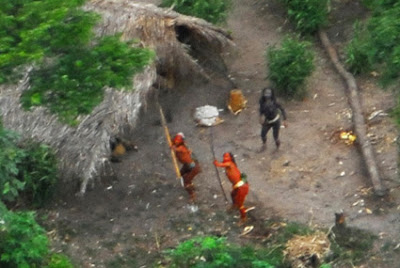
These men are trying to drive off the plane from which these photographs were taken. They are aiming their bows at the aircraft, which had returned to fly over the settlement for a second time, after making a first pass some hours earlier. Uncontacted Indians of the Envira who are in the Terra Indigena Kampa e Isolados do Envira, Acre state, Brazil. These Indians live in six different places, each community has six communal houses. Uncontacted Indians, Brazil
© GLEISON MIRANDA/FUNAI.
WE: Do you have other campaigns?
MR: Yes, in addition to the campaigns supporting specific tribes, we have several thematic campaigns. For example, 'Progress can kill' aims to highlight the shocking effects of forced development and loss of their land on tribal peoples' health. I personally think the report at the centre of this campaign is the most powerful Survival publication I have ever read. We also have a campaign which aims to combat the notion that tribal peoples are 'primitive' and 'stone age', and to show how damaging such stereotypes are. And our International Law campaign aims to get governments to ratify ILO 169, the international law on tribal peoples, and to abide by it.
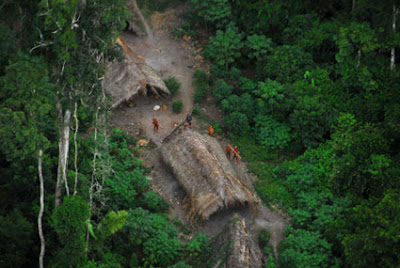
The white blob in the photograph could well be cotton. The cotton would either be cultivated by the tribe, or gathered in the wild. It would be woven by the women to produce clothes and to make hammocks. Uncontacted Indians of the Envira who are in the Terra Indigena Kampa e Isolados do Envira; Acre state; Brazil - Uncontacted Indians, Brazil
© GLEISON MIRANDA/FUNAI
WE: What can people do, to make a difference?
MR: There are lots of things people can do to help. You can make a donation, or even better, become regular supporters, to help ensure that we are able to continue our work. In order to maintain our independence, Survival does not accept money from national governments, so most of our funding comes from individual supporters. It's easy to donate on our website. You can also fundraise for Survival, for example through sponsored events. Equally important are the people who take action in support of our campaigns. We send out regular action bulletins to our supporters, and we also send out action alerts in our email news service, asking people to write letters to governments and companies who are violating tribal peoples' rights, or who have the power to bring about change. You can also find a full list of our letter writing campaigns. Writing letters is a really effective way of supporting tribal peoples - Survival campaigners have been told first-hand by government figures how much impact the receipt of hundreds of letters has had on them. Often, the people whom Survival's campaigns support are very remote and have little or no voice, so letters from Survival and members of the public can sometimes be the first way the person in power even hears about the problem. For people who want to get more involved, a good way is to distribute Survival literature and raise awareness in your local area. And if you live near one of Survival's offices, we are often looking for volunteers.
WE: You also have a catalog - what products are available there?
MR: I know I'm biased, but we have the most beautiful Christmas cards I've ever seen. We also have illustrated diaries and wrapping paper. We have a cool range of t-shirts, and jewellery designed specially for Survival by Pippa Small. Plus, books, mugs and CDs.
WE: Is there anything else you'd like to share with us?
MR: Never doubt that you can make a difference.
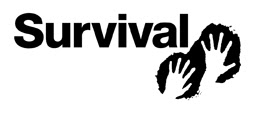
WE: Thanks so much, Miriam. The work of Survival International is critical.
For more information, please see: http://www.survivalinternational.org/
Feature photo: Y‹kwa ritual that is held in celebration of fish but also linked in to the ancestral spirits, Enawene Nawe, Brazil, 2008
Enawene Nawe, Brazil
© Fiona Watson/Survial
